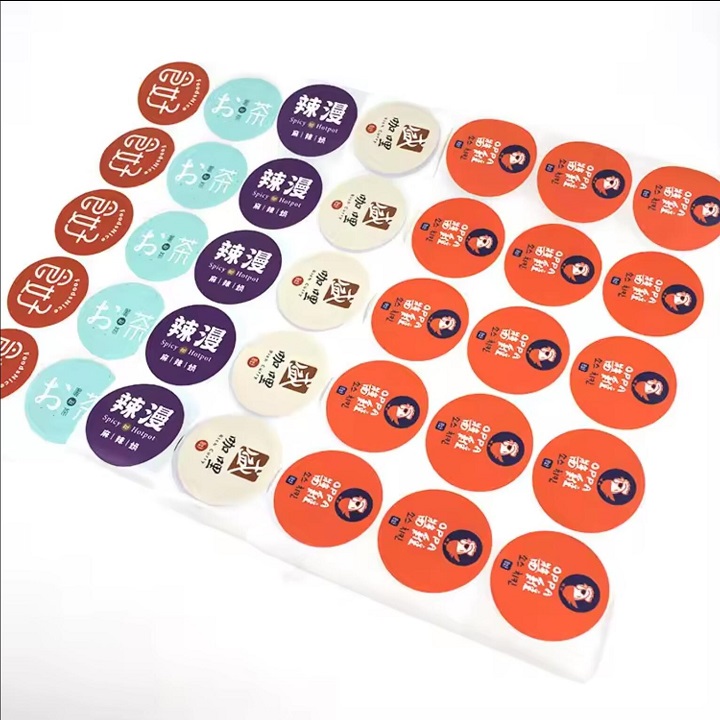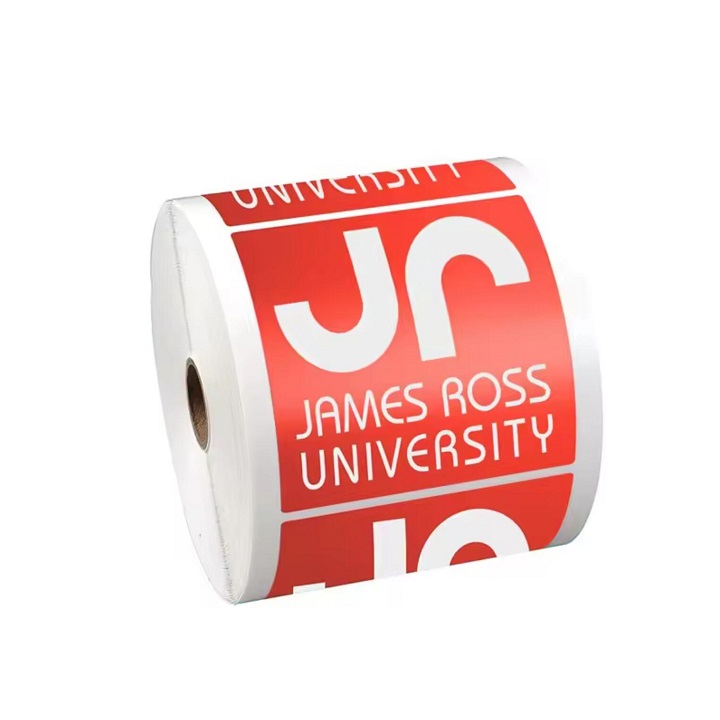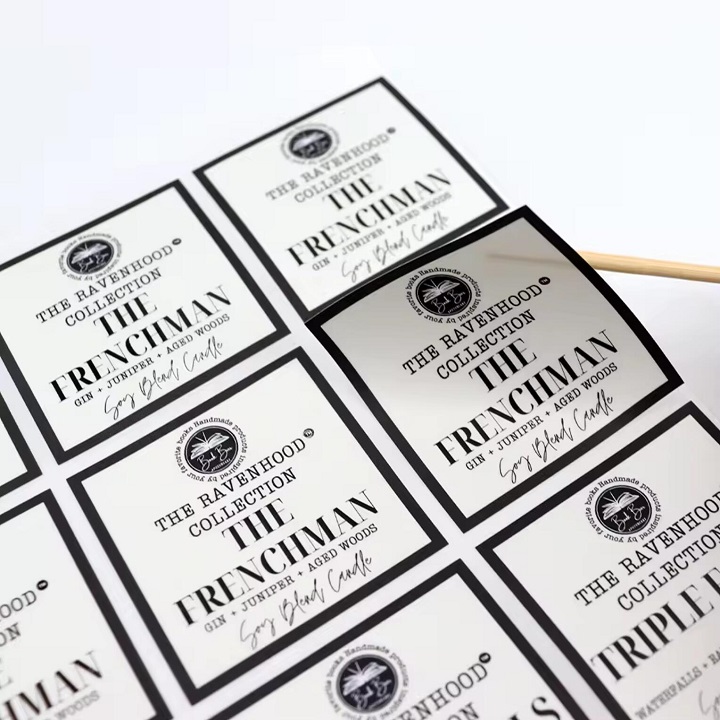Content Menu
● Introduction to Custom Labels Industry in Japan
● Why Choose Japanese Custom Labels Manufacturers?
>> 1. High-Quality Standards
>> 2. Advanced Printing Technologies
>> 3. Eco-Friendly Production
>> 4. Customization and Flexibility
>> 5. Integration with Supply Chain
>> 6. Innovation-Driven Approach
● Leading Custom Labels Manufacturers in Japan
>> Dainippon Printing Co., Ltd.
>> Toppan Printing Co., Ltd.
>> SEIKO PMC Corporation
>> Fuji Seal International, Inc.
>> Other Noteworthy Suppliers
● Technologies Behind Japanese Custom Labels Production
>> Digital Printing
>> Flexographic Printing
>> Gravure Printing
>> Laminating and Coating
>> Smart Labels and Embedded Electronics
>> Sustainable Material Innovations
● Types of Custom Labels Offered
● Market Trends and Innovations
>> Sustainability as a Core Focus
>> Personalization and Variable Data Printing
>> Smart Packaging Integration
>> Minimalist and Functional Design
>> Collaborative Design and Prototyping Tools
>> Compliance and Regulatory Adherence
● How to Choose the Best Custom Labels Manufacturer in Japan
● Conclusion
● FAQ
>> 1. What industries benefit most from Japanese custom labels manufacturers?
>> 2. Can Japanese suppliers handle OEM custom label orders?
>> 3. What is the average lead time for custom label production in Japan?
>> 4. Are environmentally friendly label options available from Japanese suppliers?
>> 5. How do Japanese manufacturers integrate smart technology in labels?
In today's highly competitive market, branding and packaging have become crucial aspects for businesses aiming to attract and retain customers. Custom labels play a significant role in enhancing product recognition, conveying brand identity, and providing important product information. Japan, known for its advanced technology, high-quality production standards, and innovative packaging designs, hosts some of the top custom labels manufacturers and suppliers in the world. This article provides an in-depth exploration of the landscape of Custom Labels Manufacturers and Suppliers in Japan, highlighting their capabilities, technologies, and market trends, while providing a comprehensive guide for businesses seeking to elevate their packaging through Japanese expertise.

Introduction to Custom Labels Industry in Japan
Japan's packaging and labeling industry is characterized by a blend of traditional craftsmanship and cutting-edge technology. Custom labels in Japan are widely used across various sectors, including cosmetics, food and beverages, pharmaceuticals, and electronics. The demand for bespoke labels with personalized designs, superior print quality, and sustainable materials has surged, positioned to meet the sophisticated tastes of both domestic and international clients.
As a custom labels manufacturer and supplier, Japanese companies emphasize precision, durability, and aesthetic appeal. From minimalist sleek designs favored by tech companies to vibrant, elaborate labels for luxury goods, Japan's manufacturers cater to diverse customer needs. Moreover, many Japanese custom label firms provide OEM services, allowing foreign brands and wholesalers to benefit from their local expertise.
The importance of labels extends beyond simple decoration. In Japan, labels often serve multiple roles: as a means of product authentication, enhancing user experience through augmented reality (AR) interactions, and complying with regulatory requirements for packaging. This multifunctionality pushes the manufacturers to adopt innovation continuously, supporting brands in building trust and loyalty globally.
Why Choose Japanese Custom Labels Manufacturers?
Several factors contribute to the prominence of Japanese Custom Labels Manufacturers and Suppliers in the global market:
1. High-Quality Standards
Japan's manufacturing culture emphasizes meticulous quality control and attention to detail, ensuring that every label produced meets strict specifications regarding color accuracy, material texture, and durability. This precision results in labels that maintain their integrity throughout the product lifecycle, whether exposed to moisture, sunlight, or abrasion.
2. Advanced Printing Technologies
Many manufacturers utilize state-of-the-art printing methods such as digital printing, flexography, and gravure printing, incorporating innovations like UV coating and holographic finishes to produce eye-catching labels. These technologies allow the creation of complex visual effects and fine details that set products apart in crowded marketplaces.
3. Eco-Friendly Production
Japan's eco-conscious approach influences the use of sustainable, biodegradable materials and eco-friendly inks, aligning with global demand for environmentally responsible packaging. Besides material sourcing, many manufacturers integrate waste reduction strategies, energy-efficient machinery, and recycling programs as part of their production processes.
4. Customization and Flexibility
Japanese manufacturers are adept at handling low to large-volume orders with customized shapes, sizes, and finishes, catering to niche markets and large enterprises alike. Their ability to incorporate client branding precisely is complemented by strong design support teams who collaborate early in the product development phase.
5. Integration with Supply Chain
These suppliers often integrate labeling solutions seamlessly with clients' supply chains, offering timely delivery and comprehensive customer support. Their logistics networks facilitate smooth export processes, addressing customs requirements and ensuring that delays are minimal for overseas clients.
6. Innovation-Driven Approach
Japanese suppliers lead in innovations such as smart labeling technologies including RFID and NFC, holographic security features, and functional labels with temperature sensitivity or anti-counterfeiting measures. This technological edge enhances product safety and interactivity.
Leading Custom Labels Manufacturers in Japan
Japan hosts numerous companies that have set global standards for custom label quality and innovation. Some of the most influential manufacturers and suppliers include:
Dainippon Printing Co., Ltd.
A pioneer in printing technology, Dainippon Printing offers custom labels with premium finishes, including metallic and textured options. Their dedication to research and development has resulted in labels that withstand harsh conditions while retaining vibrant visuals. They also excel in functional labels for pharmaceuticals and food safety.
Toppan Printing Co., Ltd.
Toppan is renowned for its extensive range of labeling solutions, emphasizing smart packaging with embedded technologies such as NFC and QR codes for interactive consumer experiences. Their approach integrates digital connectivity with traditional printing excellence, supporting brands in creating multi-dimensional engagement.
SEIKO PMC Corporation
Specializing in EMI shielding labels and custom functional labels, SEIKO PMC integrates high-performance features into visually appealing labels, ideal for electronics and automotive industries. Their labels often combine material sciences and printing expertise to meet industrial specifications.
Fuji Seal International, Inc.
They provide flexible packaging and pressure-sensitive labels, combining advanced printing methods with eco-friendly materials to meet food and beverage industry standards globally. Their sustainable packaging solutions accommodate a wide variety of consumer goods.
Other Noteworthy Suppliers
A variety of smaller but innovative companies in Japan deliver highly customized and artistic labeling solutions, often servicing local artisanal producers, specialty food makers, and export-oriented wholesalers. These firms frequently push the boundaries of design and material use to fulfill niche requirements.

Technologies Behind Japanese Custom Labels Production
The strength of Japanese Custom Labels Manufacturers and Suppliers lies in their technological edge, combining precision mechanics with digital advancements to produce unparalleled label quality. Let's explore key production methods:
Digital Printing
Ideal for short runs and rapid prototyping, digital printing allows for personalization and variability within a single batch. This flexibility helps brands tailor labels for limited editions, seasonal promotions, or market-specific adaptations without large minimum orders.
Flexographic Printing
Known for its speed and efficiency, flexography delivers vibrant colors on various materials, making it the preferred choice for large-volume custom label production. It supports diverse substrates from papers to plastics and permits specialized ink applications.
Gravure Printing
Gravure printing excels in producing ultra-high quality images with deep, rich color saturation. It is commonly used for premium product lines requiring consistent and attractive optical appeal.
Laminating and Coating
Protective coatings such as UV varnishes, matte finishes, and embossing are employed to enhance durability and add tactile qualities. Laminating can safeguard labels against external wear, moisture, and chemical exposure, essential for products with extended shelf lives.
Smart Labels and Embedded Electronics
Manufacturers utilize technologies like RFID and Near Field Communication (NFC) tags embedded within labels. These smart labels improve inventory management, combat counterfeiting, and elevate user interaction through apps and digital verification.
Sustainable Material Innovations
In response to global environmental concerns, manufacturers develop biodegradable films, water-based adhesives, and soy-based or vegetable inks. These eco-friendly materials not only reduce environmental impact but also resonate with consumer demand for green product choices.
Types of Custom Labels Offered
Japan's custom label suppliers offer a wide range of labeling solutions designed to meet diverse product requirements. Understanding these options helps brands select the best fit for their packaging goals:
- Paper Labels: Versatile and cost-effective, paper labels are popular in food, cosmetics, and retail sectors. They offer excellent print quality and recycle compatibility.
- Plastic and Vinyl Labels: These provide waterproof and resistant qualities, well-suited for industrial usage or products exposed to moisture like detergents or beverages.
- Holographic Labels: Featuring metallic or prism effects, these labels enhance security and brand prestige, often seen on luxury goods or official certifications.
- Tamper-Evident Labels: Crucial for product safety and compliance, these labels show visible signs of interference, ensuring authenticity.
- Thermal Labels: Used extensively in logistics, shipping, and inventory control, these labels react to heat for efficient barcode printing.
- Eco-Friendly Labels: Made from biodegradable or recycled materials, these labels appeal to environmentally conscious consumers and forward-thinking brands.
- Functional Labels: Such as temperature-sensitive or UV-reactive labels that change appearance with heat or light, offering additional product information or quality indicators.
Market Trends and Innovations
The Japanese label manufacturing industry continuously evolves in response to market demands and technological advances. Current trends show significant movements in several areas:
Sustainability as a Core Focus
Eco-awareness drives suppliers to innovate in reducing waste and promoting sustainable label materials. Customers increasingly require packaging that aligns with circular economy principles without compromising brand aesthetics.
Personalization and Variable Data Printing
Digital technologies empower brands to deliver personalized labels featuring unique codes, customer names, or bespoke graphics. This trend helps marketers connect directly with consumers, fostering loyalty and engagement.
Smart Packaging Integration
Labels now often carry embedded devices for tracking, authentication, and interactive marketing. Japanese manufacturers are at the forefront of integrating these elements while ensuring label design remains visually attractive and functional.
Minimalist and Functional Design
Influenced by Japanese cultural aesthetics, many brands prefer clean, simple label designs emphasizing clarity and elegance. This approach often improves consumer communication and reflects high product quality.
Collaborative Design and Prototyping Tools
Manufacturers offer collaborative platforms where clients can engage in real-time design adjustments and receive digital proofs, accelerating development time and reducing errors.
Compliance and Regulatory Adherence
As global regulations on labeling tighten, Japanese manufacturers ensure compliance with international standards related to ingredient disclosure, safety warnings, and traceability.
How to Choose the Best Custom Labels Manufacturer in Japan
Selecting the optimal Japanese Custom Labels Manufacturers and Suppliers is critical for product success. Here are important considerations when making this choice:
- Product Compatibility: Confirm that the manufacturer has expertise with your product type and packaging environment, ensuring label performance.
- Quality Assurance: Seek manufacturers certified by international standards such as ISO and those offering sample testing before large orders.
- Customization Capability: Assess their ability to handle special shapes, finishes, variable data, and integrated technologies.
- Lead Times and Logistics: Review production schedules and shipping options to align with your supply chain demands.
- Sustainability Practices: Verify the manufacturer's commitment to eco-friendly materials and processes that match your brand's green initiatives.
- Customer Service and Communication: Effective collaboration throughout the production cycle ensures your needs are met accurately and timely.
- Technology and Innovation: Engage suppliers who invest in R&D and offer modern printing and smart packaging solutions.
Conclusion
Japan stands as a global leader in the realm of Custom Labels Manufacturers and Suppliers, merging unparalleled craftsmanship with advanced technology and sustainability principles. Whether producing simple paper labels or intricate smart-label solutions, Japanese manufacturers excel at delivering products that meet rigorous quality and aesthetic demands. Coupled with their OEM services tailored for foreign brands and wholesalers, partnering with these manufacturers provides access to superior, innovative labeling solutions that enhance brand value and consumer engagement worldwide.
Brands looking to elevate their packaging through custom labels will find in Japan a rich pool of expertise, innovation, and quality assurance — ensuring their products not only stand out on the shelves but also build lasting trust with end consumers.

FAQ
1. What industries benefit most from Japanese custom labels manufacturers?
Japan's custom labels manufacturers serve multiple sectors including cosmetics, food and beverage, pharmaceuticals, electronics, and automotive industries. Their ability to produce specialized labels makes them suitable for a wide range of applications.
2. Can Japanese suppliers handle OEM custom label orders?
Yes, many manufacturers in Japan specialize in OEM services tailored for foreign brands, wholesalers, and manufacturers, providing customized batches according to client requirements with flexible order volumes.
3. What is the average lead time for custom label production in Japan?
Lead times typically range from 2 to 6 weeks depending on order complexity and volume. Expedited production options may be available for urgent orders.
4. Are environmentally friendly label options available from Japanese suppliers?
Absolutely. There is a strong emphasis on sustainable materials, biodegradable films, soy-based or vegetable inks, and recycling initiatives among Japanese suppliers to meet eco-conscious market demands.
5. How do Japanese manufacturers integrate smart technology in labels?
Many incorporate RFID, NFC tags, QR codes, and other interactive elements within labels to enable product authentication, inventory management, and enhanced consumer engagement through connected digital platforms.
































